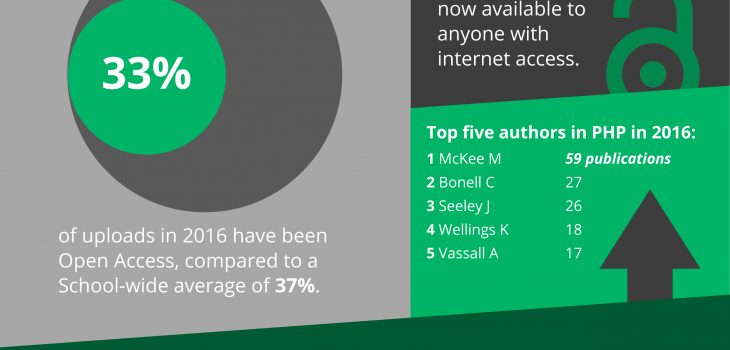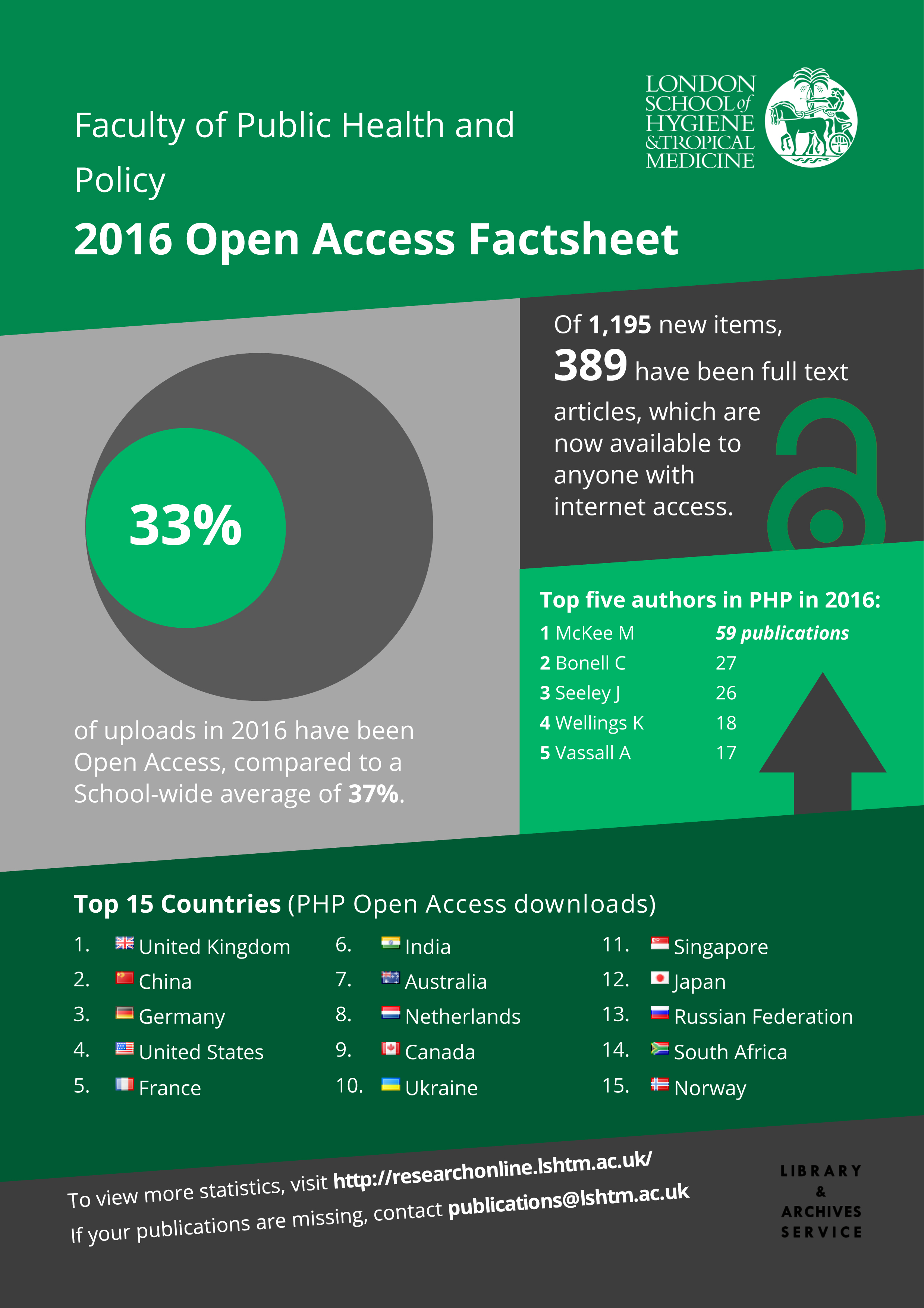As part of the week’s activities we are sharing some info-graphics we’ve produced in the Library covering Open Access and publications.
The infographic below explains the level of published Open Access for the Faculty of Public Health and Policy during 2016 and deposited with LSHTM Research Online, the School’s Open Access research repository. Also available are infographics for the Faculty of Public Health and Policy and Faculty of Epidemiology and Population Health.
There’s a lot of factors that go towards the figures we use below so we’ve included some notes on how we came to them.
Thanks go to Library Assistant, Andrew Medder who did the info graphic magic.
Notes on infographic
- These stats are for 2016 so far.
- The number of publications (and therefore percentage of OA) relate to what we have harvested from PubMed Central or Web of Science with the School’s address as an Affiliation. (This will be added to the School’s Publications Database automatically. They are then linked (coded by the Library) to School authors, faculty/departmental units, and Research Centres. This metadata is then synchronised to Research Online, the School’s repository for full-text outputs, and also the public interface to all research outputs records. Open-access full-text is automatically added – where possible – many publishers insist on lengthy embargo periods).
- Chapters, books, reports, etc. are unlikely to be included in the infographic below because they are are not picked up by PMC or Web of Science. This includes external collaborations (if the first author is not from the School; any work published when you were at another institution; large studies where you are listed as a collaborator rather than an author).
- If you do have books, reports or chapters for inclusion you should submit your publications as an EndNote compressed library, or a list of PubMed PMID numbers to us here at the Library. Library guide on how to create EndNote publications file
- There is no single database available to check that research papers are Open Access in which we can then add to Research Online. So we rely on School authors to send them to us (as part of the REF Open Access requirements all final draft copies should be sent to us upon acceptance by a journal anyway) but paid-for Open Access articles outside of what the Library has paid should be sent to us routinely otherwise they won’t be counted below.
- Open Access is a positive good, it makes available research to a wider audience, it makes available research to those who cannot or do not have a subscription to a journal, it increases the impact of that research.
Happy Open Access Week.
PHP – Open Access info-graphic 2016








